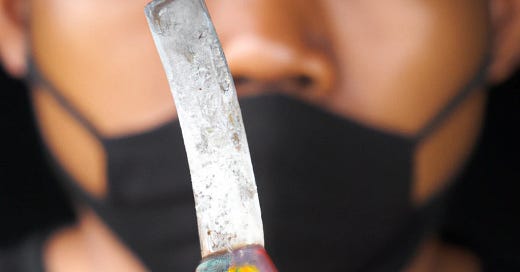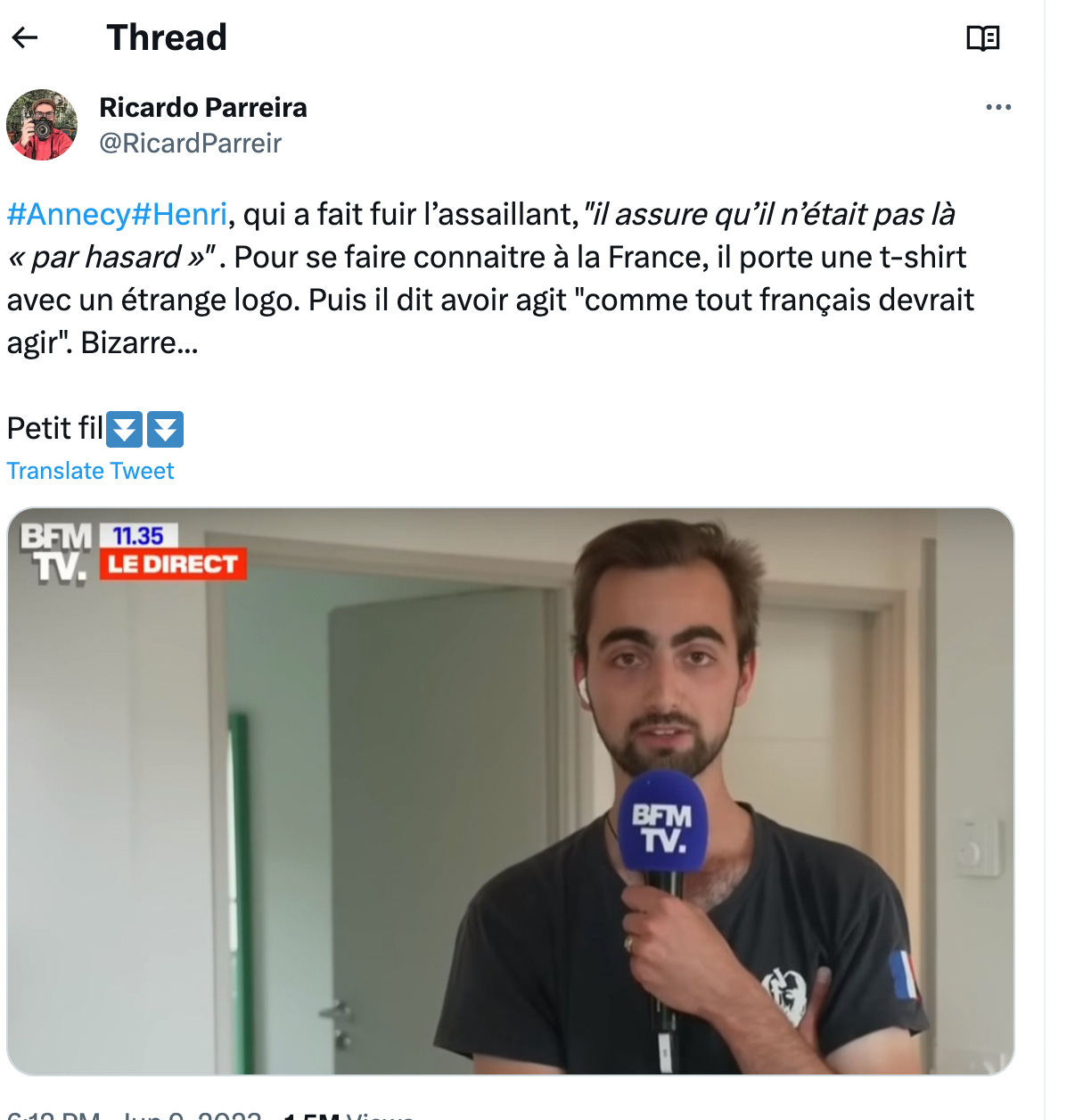There were two tragedies at Annecy
The first was the barbaric attack on young children. The second was that in the face of this brutal attack, many adults simply froze, ran away, or opted to film this horrific drama voyeuristically.
Watching the video of the horrific drama unfolding in Le Pâquier playground in Annécy, my first reaction is horror at seeing a grown-up man running around with a knife stabbing children. The spectacle of an adult consciously targeting toddlers still preys on my imagination.
But then, something else began to disturb my thoughts. It was the sight of the 31-year-old Syrian knifeman walking almost casually in search of his next victim. Even when he started running to look for his next prey, his steps were relatively slow, as if he believed no one would disturb his deadly mission.
Later I read that many parents grabbed their children and ran. I completely get their action. Protecting your child is a totally spontaneous and understandable reaction. But some adults claim that they simply froze. And then there were the voyeurs who opted to film this violent assault on childhood instead of intervening to stop this frenzied attack.
‘Why did not more adults get stuck in to protect the toddlers’ was my immediate question.
Thankfully not all the grown-ups in the park opted to give the knifeman a free pass. You can see a mother run to shield a child from the attack. One young man got stuck in and hit the knifeman with a rucksack. And then there was the young Catholic pilgrim, Henri d’Anselme, a 24-year-old young man who decided to take on the violent assailant of children. His action showed that the human impulse to protect our young has still not been extinguished. It is an impulse we can no longer take for granted, but thankfully there is always someone to remind us of our duty to our children.
That duty we owe to the young goes by the name of adult responsibility. Throughout history, communities have acted on the assumption that adults bore a responsibility towards the direction, education and socialisation of the younger generations. Grown-ups are not just individuals but members of a wider world of adults. By their very existence, they represent adulthood to the younger generation and, through their behaviour, send clear signals about what we ought to expect from children.
The assumption of adult responsibility is a collective response to social necessity – not simply a collection of arbitrary responses by individual grown-ups acting on their self-generated personality traits. Adult responsibility is a type of collective responsibility for the future well-being of the younger generations. This is a shared responsibility since neither individuals on their own nor a single institution such as the family or the school can be expected to cultivate the desired attributes and character in young people successfully. The development of moral virtues and character has the exercise of adult responsibility as its premise.
It appears that in France and throughout the Western world, the moral virtues on which adult responsibility is based have diminished in their influence over society. Henri d’Anselme clearly articulated the significance of this development. Despite public acclaim, he refused to regard himself as a hero. He stated;
‘Many treat me like a national hero, which for me is a bit absurd because I just acted as all French should act. If everyone acted like I did, France would be a far safer country and we would have heroes on every street corner. All you need to do is hold your head high and see what is great and good, take inspiration from that and act accordingly’.[i]
Henri’s gentle reminder to others that if they, too, acted as responsible adults, ‘France would be a far safer country’ is very much to the point. If indeed the adult world took cognisance of their role as adults, we would create a safe society and a genuine community where the young could flourish.
Unfortunately, the virtues underpinning Henri’s behaviour – duty, courage, solidarity, responsibility and patriotism – are in short supply. It is worth noting that some commentators took offence at Henri’s sense of patriotism.[ii] Sections of the French commentariat criticised Henri for wearing a T-shirt that sported his nation’s flag!
The Liberation journalist Daniel Schneidermann sarcastically dismissed Henri as Henri D’Arc. Schneidermann’s snidey coupling of Henri to France’s National Heroine Joan of Arc aimed to take down his target for claiming that his action was inspired by the grandeur of the Catholic Cathedrals he visited during his pilgrimage around France. In Schneidermann’s eyes, Henri and the religious source of his action are incomprehensible.
One photojournalist, Ricardo Parreira, posted a tweet that stated
#Annecy#Henri , who scared the assailant away, "he assures that he was not there "by chance"" . To make himself known to France, he wears a t-shirt with a strange logo. Then he says he acted "like every Frenchman should act". Weird...
Henri’s statement appears weird to someone who regards patriotism with contempt and therefore finds the claim that every Frenchman should act with responsibility and courage incomprehensible.
That commentators can regard Henri d’Anselme’s call on every Frenchman to act with courage as weird serves as testimony to the moral disorientation and cynicism of sections of the French Commentariat. Their reaction to the tragedy at Annécy serves as a reminder of the moral malaise afflicting a society where many adults have become estranged from their responsibility for the well-being of the young.





